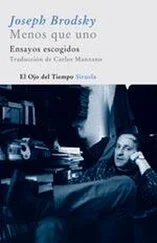Acharya felt invisible creatures biting his buttocks. He moved in a jive as if to crush them angrily, and that made Lavanya chuckle. ‘What?’ he asked, thinking that she had gone mad with sorrow.
‘Nothing,’ she said. They travelled in silence for a while. Then he reached out and held her hand. As though it were a mystical martial art technique, her languid head fell on his shoulder.
The concourse that led to the departure terminal was a gentle gradient. Acharya walked up like a benevolent genie carrying a suitcase that appeared small in his hand. He felt odd holding a single suitcase. It had the austerity of elopement.
As a boy, he had once gone with friends to count the steam trains from a footbridge. He had seen a pair of fleeing lovers on the narrow-gauge track running towards the railway platform, fearing that the world was chasing them. The man was holding a black briefcase and the girl was carrying a small cloth bag. For many years after that, even now on this rainy night, in a corner of his mind Acharya associated love with lightness, and marriage with extra luggage. Usually, when he and Lavanya arrived at the airport, he was pushing an overloaded trolley like the hotel housekeeping arriving at a door. There was another reason why he felt odd as he walked up the gradient. This was the first time he was sending Lavanya off. Normally it was she who sent him off. Or, she travelled with him, and that was always an event. She never let him take shoulder-bags. Suitcases it had to be. ‘Clothes don’t get crumpled that way,’ she would say. He secretly admired her logic, and even conceded that she was right, but a bag to him was a symbol of nomadic freedom, an imperfection that said the journey was not important, the destination inconsequential. A suitcase, on the other hand, was a sign of grand departures and self-important arrivals. It was a confession, like the shirt of a dandy, that life was important. Once, when he had told Lavanya this, she screamed, ‘My god what a poet, you travel business class don’t you?’
They reached the glass doors of the terminal where three guards were checking the tickets of passengers in the middle of bad-mouthing a senior who was not present. Acharya fumbled for Lavanya’s ticket in his pockets. He had just purchased it from the counter. He was pleased when he found it and gave his wife a wide grin. She looked at him with worry. How was he was going to take care of himself?
‘Open the door for the maids,’ she said. ‘I have Meenu’s mobile. I will call her every day.’
‘Who is Meenu?’
Lavanya looked exasperated. ‘She is our cook.’
He pulled up the tow handle of the suitcase and gave it to her with a deep, grim face, as though it was a lifetime achievement award. She dragged the suitcase, sniffling, holding a kerchief to her nose which was now red. Before she entered the terminal she turned to look at her husband. He waved at her. A young couple behind her mistook her tears for the romantic distress of separation. They gave the seniors an exaggerated look of approval. ‘So cute,’ the girl said.
Lavanya disappeared somewhere behind the X-ray machines. When Acharya turned to leave he felt the same way he used to feel as a boy when he dropped letters in the postbox. There was this sense of an unremarkable relief mixed with a nagging suspicion that he had lost something he was holding.
It was two in the morning when Acharya reached home. He had expected the gloom of its vast tidy rooms, and the haunting silence of loneliness that was somehow different from the silence of togetherness. He went to the bedroom and played Pavarotti at full volume through the night. Just once he turned the volume down — when he called Lavanya on her mobile to ask if she had arrived safely. She was surprised to get his call. Against the background noise of her loud relatives, she screamed, maybe to show off that her husband cared, ‘Yes, I’ve arrived.’
When the sun rose he was standing in the balcony, and the house was still in the turbulence of Pavarotti’s wails. At the end of an aria, in its transient baffling silence, Acharya heard the doorbell. He opened the door and found the maid. She tried to enter, but Pavarotti’s sudden murderous pitch rose and it shook her. Before she could recover, he slammed the door in her face. When the cook arrived, he did not open the door.
The whole morning he stood on the balcony, missing the interruption of Lavanya and her inopportune Madras filter coffee, and her unreasonable taunts as to why he was not walking when he was wearing Nike shoes. To impress her, in case she called him later in the day, he put on his tracksuit, wore the shoes with pump action (or something like that), and stepped out. He wanted to stroll down the inner lanes of Navy Nagar, but returned in ten minutes, unable to bear the sight of grown-up sailors going to work in white shorts, their hairy legs pedalling cycles or riding motorbikes. And there was something about people wearing white in the monsoon that he found rather foolish. He did not feel like going back home. So he walked inside the Quarters and discovered that its clear blue pool was actually used in the mornings.
A portion of the pool was cordoned off for fat women who were dancing in some kind of ludicrous aerobic activity. There were eight of them and their nervous eyes drifted from the female instructor to his dismayed glare. Close to where he was standing, he saw a little girl trying to swim without floats. She was scared and she told everyone who swam close to her, ‘I am your friend, no?’ She reminded him of Shruti, and he tried to meet her eyes to smile. But he was distracted by a woman in the pool who was trying to teach her mother how to swim.
‘Mama, you’re afraid. I can feel the fear in your stomach,’ she was telling the old woman, with the severity of daughter’s love. ‘I want you to bring your fear up to the ribs,’ she said, placing her hand on her mother’s stomach and moving it up gently. ‘Bring it up further to your throat … Now I can feel your fear. It’s in the throat, Mama. Spit it out, spit it out.’
The shrunken ancient mother, in a costume that would have branded her a whore in her youth, blew uncomfortably into her daughter’s hand, and she surveyed the pool sheepishly.
‘I have robbed you of your fear,’ her daughter said. ‘Now swim.’
At the far end of the pool, Acharya saw a large man in swimming trunks. He had breasts. And near him, waiting to dive, there were more fat women. Apparently the young did not swim any more.
Oparna was on his mind all the while, like a foreboding. Later that morning, when he went to work and she appeared before him, he did not know what he must say to her. She looked more stunning than ever, even though she had resumed the austerity of the long shapeless top. The smell of young flesh returned to haunt his nervous peace and he was reminded again how, incredibly, she had granted him the right to be her lover. Their eyes met only for an instant. Then she sorted loose sheets of paper in her hands, and he rearranged things on his table. He asked her to sit down. She sat. They looked at each other again, this time for longer.
‘I am sorry,’ Acharya said, ‘I could not see you last night.’
‘There is some progress with the cryosampler,’ she said, and gave him a print-out of an email. And that was how she was in the days that followed. Something in her was dead. He could see it in her eyes.
The way she used to look at him, with the glow of new love, was now replaced by the silent hurt of betrayal and humiliation. She made him sad, but he also longed for this sorrow to arrive in his room as often as possible in that ascetic uniform of long top and jeans, the cassock of her platonic detachment. She spoke to him only about work, and she looked so strong and resolute in her martyrdom that he did not find cues to speak about himself or to blame the forces of virtue that stole him away from the basement.
Читать дальше












